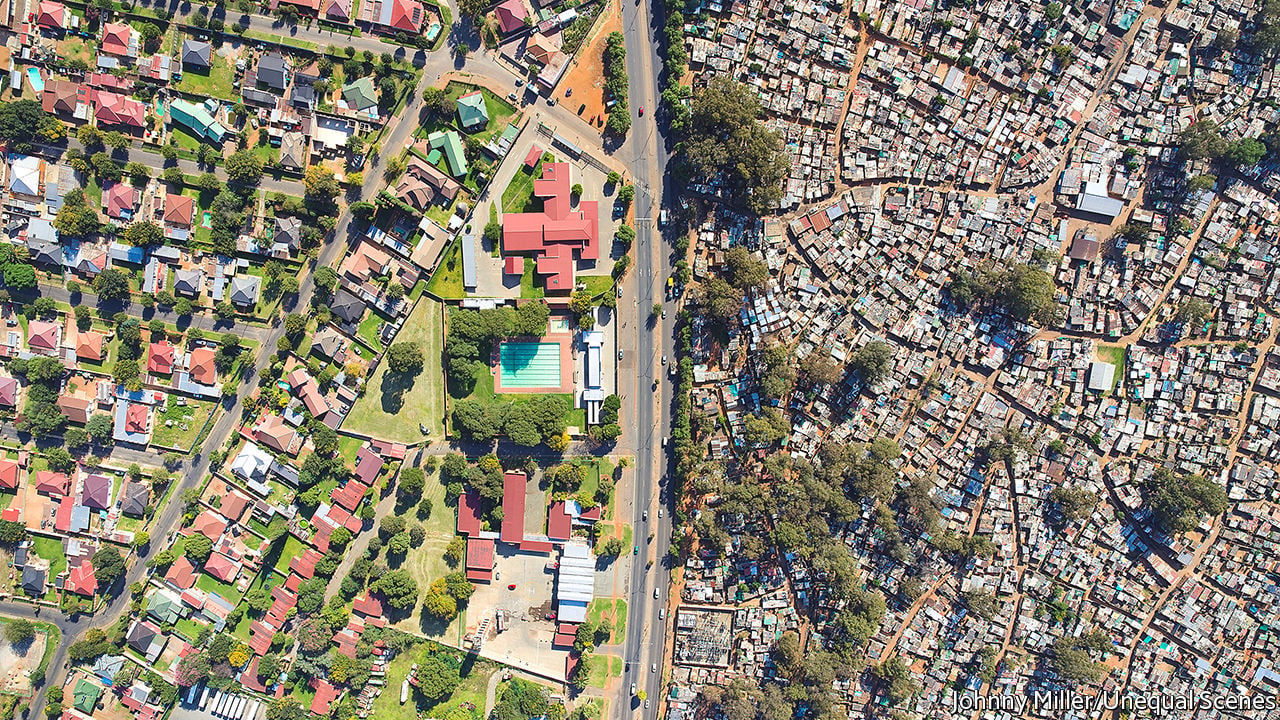National
South Africa’s income inequality has become worse over the years.  By Editor
By Editor
 July 1st, 2023 The top 1% of earners take home almost 20% of income and the top 10% take home 65%. That means that 90% of South African earners take home only 35% of all income. Incomes in South African remain to be racialized, gendered, and spatialized, meaning that white people are more likely to find work (and work that pays better) than their black counterparts; female workers earn about 30% less than male workers; and urban workers earn about double that of those in the countryside.
July 1st, 2023 The top 1% of earners take home almost 20% of income and the top 10% take home 65%. That means that 90% of South African earners take home only 35% of all income. Incomes in South African remain to be racialized, gendered, and spatialized, meaning that white people are more likely to find work (and work that pays better) than their black counterparts; female workers earn about 30% less than male workers; and urban workers earn about double that of those in the countryside. 
South Africa's income inequality has been a persistent and concerning issue, and it has indeed worsened over the years. To understand how South Africa arrived at this point, it is essential to examine the historical, social, and economic factors that have contributed to this inequality.
The legacy of apartheid stands as a significant factor. The apartheid system, which was in place from 1948 to 1994, institutionalized racial segregation and discrimination. It resulted in the systematic exclusion of the majority Black population from accessing quality education, land ownership, and economic opportunities. The apartheid regime created a highly unequal society, with significant disparities in income, wealth, and living conditions based on race.
The structure of the economy also contributes to income inequality. South Africa's economy is characterized by a dual structure, consisting of a highly developed formal sector and a large informal sector. The formal sector offers higher-paying jobs with benefits and better working conditions, while the informal sector comprises low-skilled, informal jobs with limited social protection. This dual structure contributes to income disparities, as those employed in the informal sector often earn significantly less and lack access to social benefits.
Labor market dynamics further exacerbate income inequality. High levels of unemployment, particularly among the youth, contribute to income disparities. Additionally, wage differentials between skilled and unskilled workers are substantial, with skilled workers commanding higher salaries. Limited job opportunities, insufficient skills development, and inadequate labor market policies all contribute to the persistence of income inequality.
Education and skills development play a critical role in addressing income inequality. However, South Africa's education system faces numerous challenges. Unequal access to quality education, inadequate infrastructure, and a lack of qualified teachers in disadvantaged areas contribute to educational disparities. These disparities perpetuate income inequality, as individuals with better education and skills have more opportunities for higher-paying jobs.
Government policies and their implementation also play a significant role in shaping income inequality. While South Africa has implemented various policies to address inequality, such as Black Economic Empowerment and social welfare programs, their impact has been limited. In some cases, policies have been ineffective or subject to corruption and mismanagement. Lack of comprehensive and sustained policy interventions has hindered progress in reducing income inequality.
In conclusion, South Africa's income inequality has worsened over the years due to a combination of factors. The legacy of apartheid, the structure of the economy, labor market dynamics, education and skills development disparities, and government policy implementation challenges have all contributed to this widening gap. Addressing income inequality requires a multifaceted approach, including equitable access to education and skills development, targeted labor market interventions, and effective implementation of inclusive policies to promote inclusive economic growth and social transformation.
Facebook
WhatsApp

 By Editor
By Editor  July 1st, 2023
July 1st, 2023 